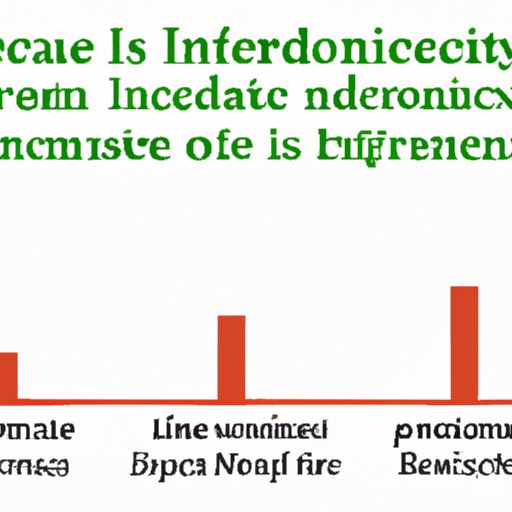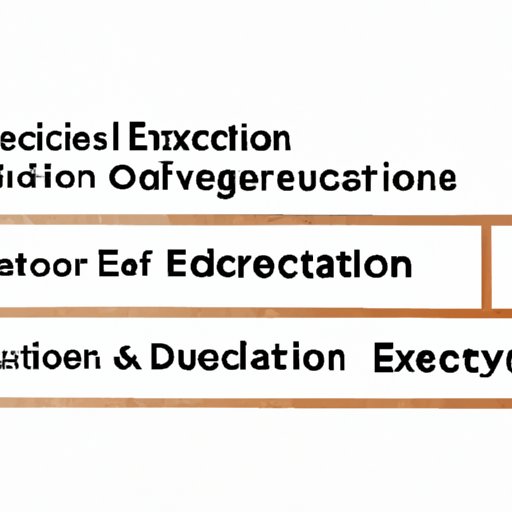What Does Level of Education Mean and Why It Matters?
Education is one of the most significant factors in today’s world. It provides individuals with the knowledge, skills, and tools they need to succeed in their personal and professional lives. Education is often a prerequisite for obtaining employment, and it can have a profound impact on an individual’s career trajectory and earning potential. In this article, we explore the meaning of level of education, why it matters, and what it can do for you.
Unpacking the Meaning of Level of Education: What It Means and Why It Matters
The level of education refers to the stage or level of education an individual has reached. This can range from basic literacy skills to advanced degrees like a Ph.D. It reflects an individual’s academic achievements and the knowledge they have acquired through formal education. Level of education matters because it can influence several aspects of one’s life, including their career, earning potential, and personal development.
Understanding the Significance of Level of Education in Today’s Competitive Job Market
Today’s job market is highly competitive, and having a high level of education can significantly impact employability. Employers often view education levels as an indicator of an individual’s skills, qualifications, and ability to learn. In general, individuals with higher levels of education are more likely to secure higher-paying jobs and experience better job security. Additionally, education is also seen as a critical factor in driving economic growth and innovation in the modern economy.
Decoding the Educational Hierarchy: From High School Diplomas to Doctoral Degrees
There are several levels of education that individuals can attain. These levels include diplomas, certificates, associate, bachelor’s, master’s, and doctoral degrees. Each level of education reflects different levels of knowledge, skills, and expertise. Higher levels of education typically require more time, resources, and commitment, but can also provide more extensive opportunities for career advancement, higher pay, and personal development.
Why Level of Education Matters Beyond Just a Line on Your Resume
While level of education can impact an individual’s resume, it can also have profound implications for personal growth and societal well-being. Education can help individuals develop critical thinking and problem-solving skills and can lead to improved overall health and well-being. Additionally, society as a whole benefits from education as it can lead to increased innovation, higher productivity, and better-quality workers.
Exploring the Correlation Between Level of Education and Career Success
Several studies have indicated that higher levels of education are generally associated with higher levels of career success. This success can manifest in the form of higher salaries, better job prospects, and upward mobility in one’s career. However, the strength of this relationship can vary depending on factors such as the industry and location, making it essential for individuals to evaluate their own situations carefully.

The Impact of Level of Education on Income and Opportunities
Higher levels of education are generally associated with higher incomes and the possibility of long-term financial success. According to the Bureau of Labor Statistics, individuals with a bachelor’s degree earn nearly double the median weekly earnings of those with only a high school diploma. Additionally, higher levels of education can lead to other opportunities such as access to leadership positions, entrepreneurial endeavors, and job flexibility.
Why Pursuing Higher Education Can Open Doors to More Than Just a Higher Salary
Higher education can lead to personal growth and development and provide opportunities for critical thinking, creativity, and problem-solving. It can also lead to more diverse career options, potentially allowing individuals to find work that aligns with their passions and interests. Pursuing higher education can be a worthwhile investment for individuals looking to further their personal and professional development.
Conclusion
The level of education can significantly impact an individual’s life. From career success and opportunities to personal growth and societal benefits, education is critical for success in today’s world. Individuals should evaluate their own level of education and consider pursuing higher education to unlock new opportunities for personal and professional development.
